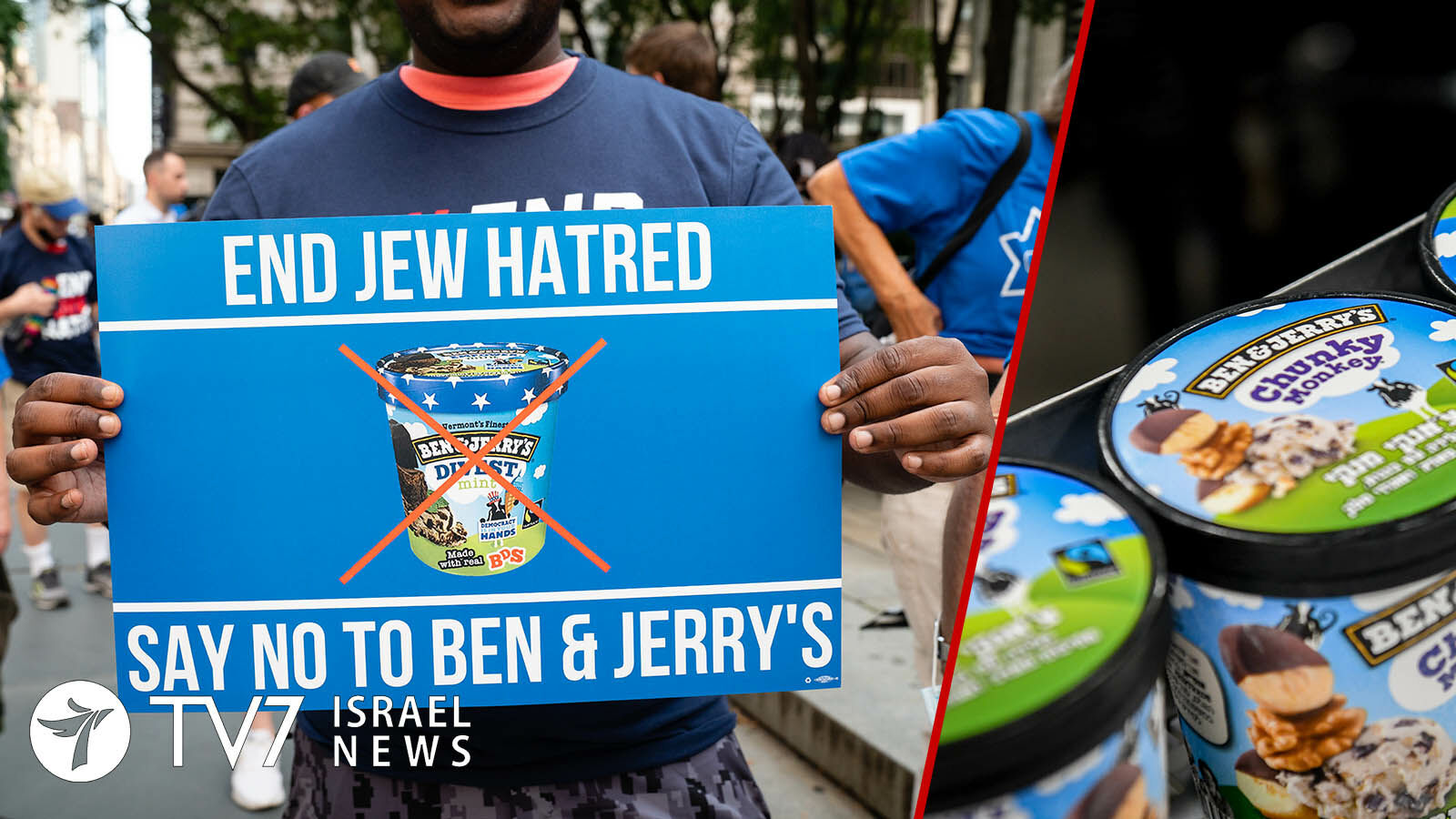The Israel licensee of the Ben & Jerry’s bought the ice cream business from Unilever, which announced last year it would stop marketing products to the “Occupied Palestinian territories.”
By Erin Viner
The move aims to resolve over a brewing diplomatic row over the political stance of Unilever, which declared that selling the ice cream in the disputed area was “inconsistent” with its values. Israel immediately condemned the sales boycott as “morally wrong” and said the consumer goods giant would face “severe consequences.”
Such actions were compatible with the international Boycott, Divestment and Sanctions (BDS) anti-Israel movement that seeks to economically isolate the Jewish State. Israel and its supporters have long denounced BDS as discriminatory and anti-Semitic.
The new owner, who paid an undisclosed sum, is the brand’s long-time Israeli ice cream licensee Avi Zinger. He had sued Ben & Jerry’s after its decision on grounds that the company had illegally severed their 34-year business relationship.
Under Zinger’s ownership, the product will be available to all consumers across Israel, including Judea and Samaria (also referred to as the West Bank) – labelled in both Hebrew and Arabic.
“This is a victory for all Israelis, and a defeat for the boycotters,” said Israeli Economy Minister Orna Barbivai in a joint statement with Interim Premier Yair Lapid, adding, “Ben & Jerry’s ice cream will continue to be manufactured here and sold in every location, it will continue to contribute to the economy and its workforce.”
Lapid, who has just become Israel’s , pointed out that the decision “not only ensures that the Ben & Jerry’s factory and its diverse workforce will be protected, but that its customers – both Jewish and Muslim, Israeli and Palestinian – will not be targeted by the de-legitimization campaign against Israel.”
He then stressed that “anti-Semitism will not defeat us – not even when it comes to ice-cream. We will fight delegitimization and the BDS campaign in every arena, whether in the public square, in the economic sphere or in the moral realm,” underscoring, “this victory is a victory for all those who know that the struggle against BDS is, first and foremost, a struggle for partnership and dialogue, and against discrimination and hate.”
The statement expressed its “deep appreciation to the many people, including Governors and elected officials at the State and Federal level in the United States and elsewhere, civil society organizations, and ordinary citizens, across the political spectrum, who stood up against the illegitimate attempt to boycott Israel” for achievement of the “important moral victory against the discrimination and anti-Semitism that lies at the heart of the BDS campaign.”
The two leaders also thanked the Foreign Ministry-led team who consulted with Unilever to resolve the matter and congratulated the new owner of Ben & Jerry’s in Israel, Avi Zinger.
Ben & Jerry’s Jewish founders, Ben Cohen and Jerry Greenfield are well known for their commitment to liberal causes – including the Black Lives Matter (BLM) movement, which has adopted a virulent anti-Israel platform and whose co-founder Patrisse Cullors in 2015 called for destruction of the Jewish State. Despite selling the company to Unilever in 2000, a Ben & Jerry’s company representative told Reuters that its independent board maintains the right to decide on its own social missions and disagrees with Unilever’s sale, saying, “We continue to believe it is inconsistent with Ben & Jerry’s values for our ice cream to be sold in the Occupied Palestinian Territory.”
Unilever, which consistently denied support for BDS, stated that it, “reserved primary responsibility for financial and operational decisions and therefore has the right to enter this arrangement.”
The West Bank was part of the land captured by Israel in the 1967 Six Day War and is demanded by Palestinians for a future state. Predictably rejecting the latest developments, Palestine Liberation Organization (PLO) official Wasel Abu Yussef said, “The return of Ben and Jerry’s to Israeli settlements, which were built on Palestinian land, exposes it to international legal accountability.” He also threatened that the company’s name will be added to “the United Nations blacklist of companies operating in settlements.”
